"Living and Non-living Things" PPT courseware Simple campus recruitment activity planning plan summary enterprise and institution recruitment publicity lecture PPT template is a general PPT template for business post competition provided by the manuscript PPT, simple campus recruitment activity planning plan summary enterprise and institution recruitment promotion Lecture PPT template, you can edit and modify the text and pictures in the source file by downloading the source file. If you want more exquisite business PPT templates, you can come to grid resource. Doug resource PPT, massive PPT template slide material download, we only make high-quality PPT templates!
| 文件名 如何下载使用 | 下载次数 | Download Points | 下载地址 |
|---|---|---|---|
| "Living and Non-living T... | 15750次 | 0.00 | Free Download |
Tips: If you open the template and feel that it is not suitable for all your needs, you can search for related content "Living and Non-living Things" PPT courseware is enough.
How to use the Windows system template
Directly decompress the file and use it with office or wps
How to use the Mac system template
Directly decompress the file and use it Office or wps can be used
Related reading
For more detailed PPT-related tutorials and font tutorials, you can view: Click to see
How to create a high-quality technological sense PPT? 4 ways to share the bottom of the box
Notice
Do not download in WeChat, Zhihu, QQ, built-in browsers, please use mobile browsers to download! If you are a mobile phone user, please download it on your computer!
1. The manuscript PPT is only for study and reference, please delete it 24 hours after downloading.
2. If the resource involves your legitimate rights and interests, delete it immediately.
3. Contact information: service@daogebangong.com
"Living and Non-living Things" PPT courseware, due to usage restrictions, it is only for personal study and reference use. For commercial use, please go to the relevant official website for authorization.
(Personal non-commercial use refers to the use of this font to complete the display of personal works, including but not limited to the design of personal papers, resumes, etc.)
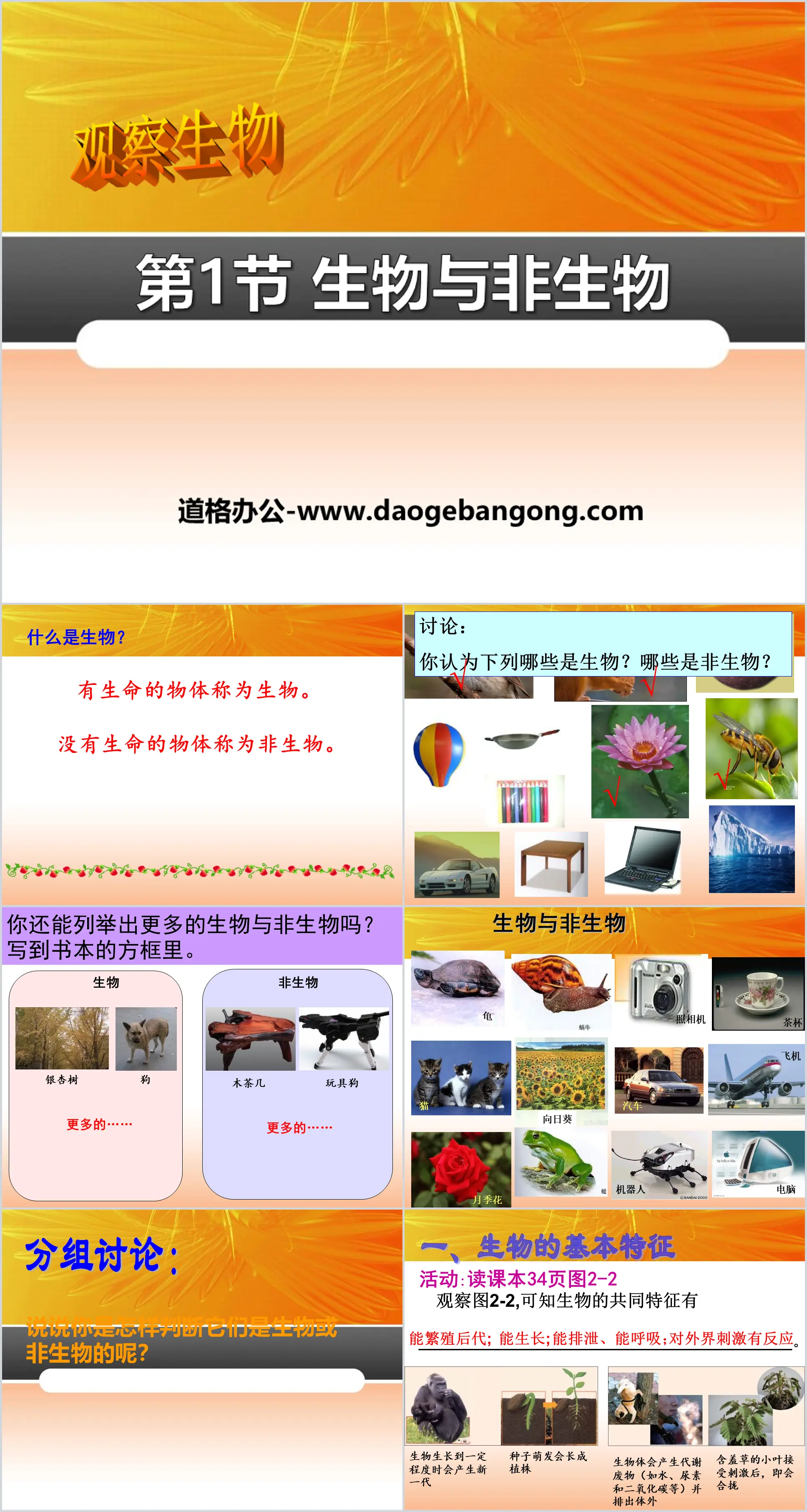
Related reading
For more detailed PPT-related tutorials and font tutorials, you can view:Please click to see


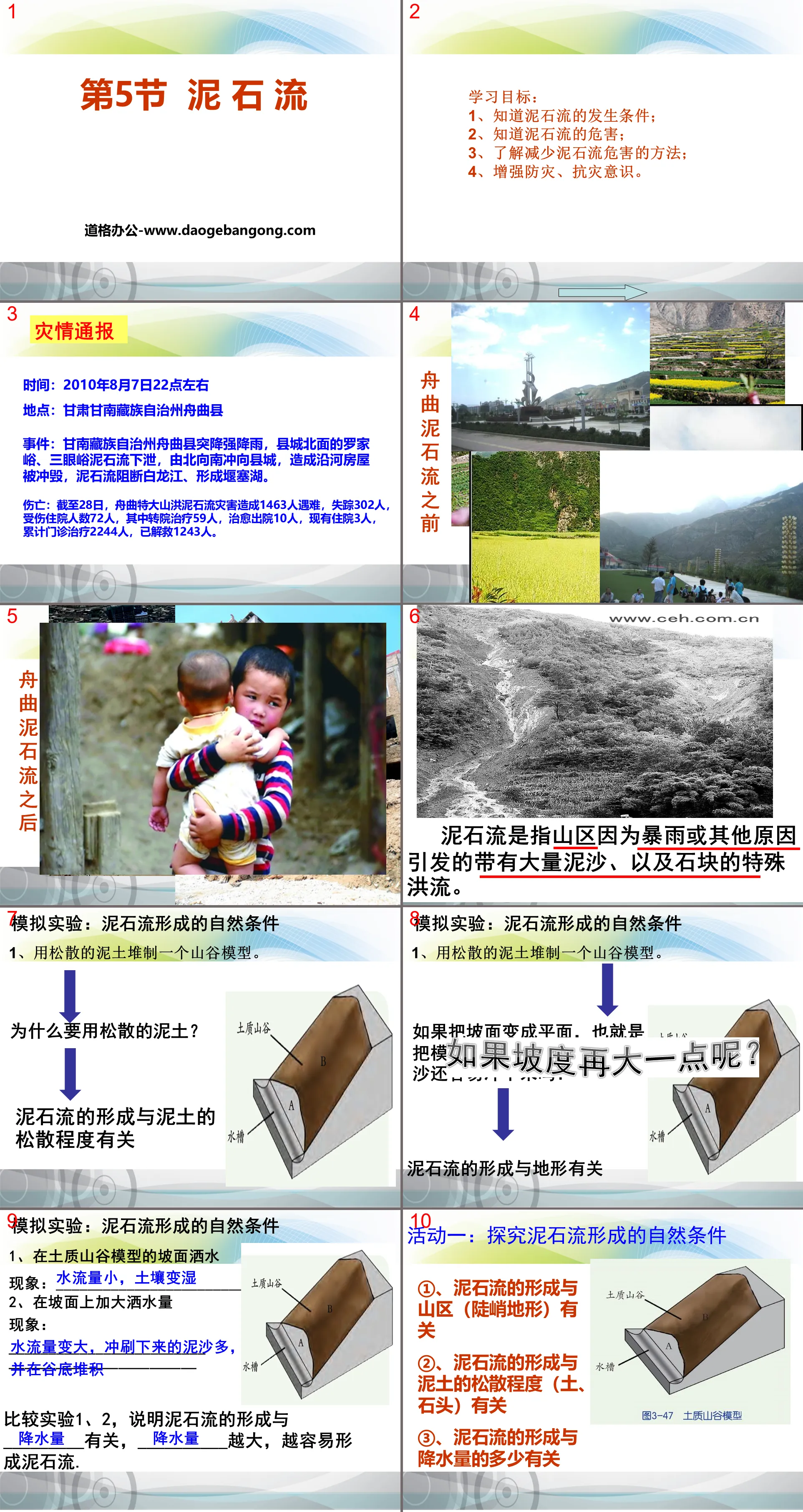

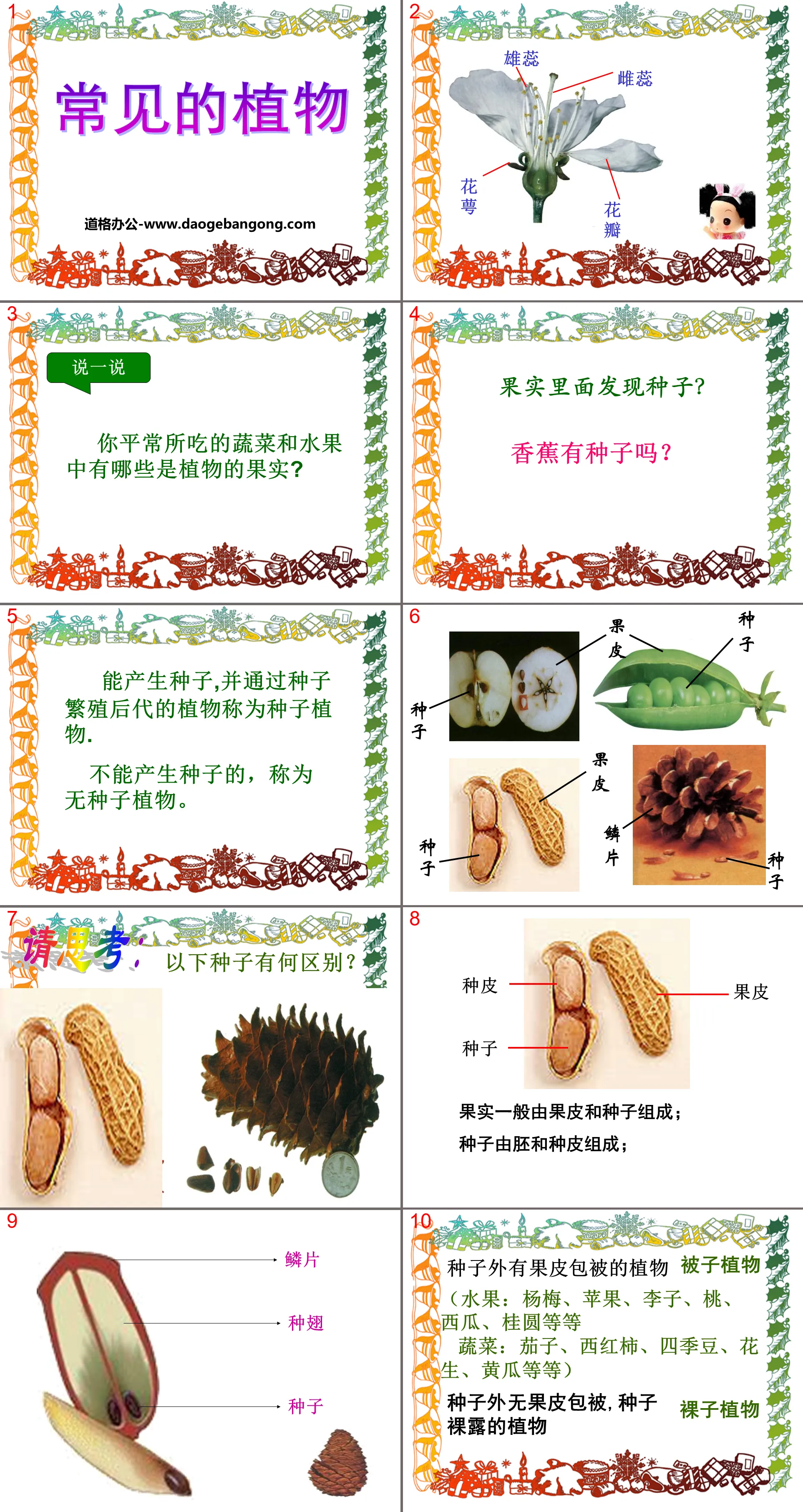
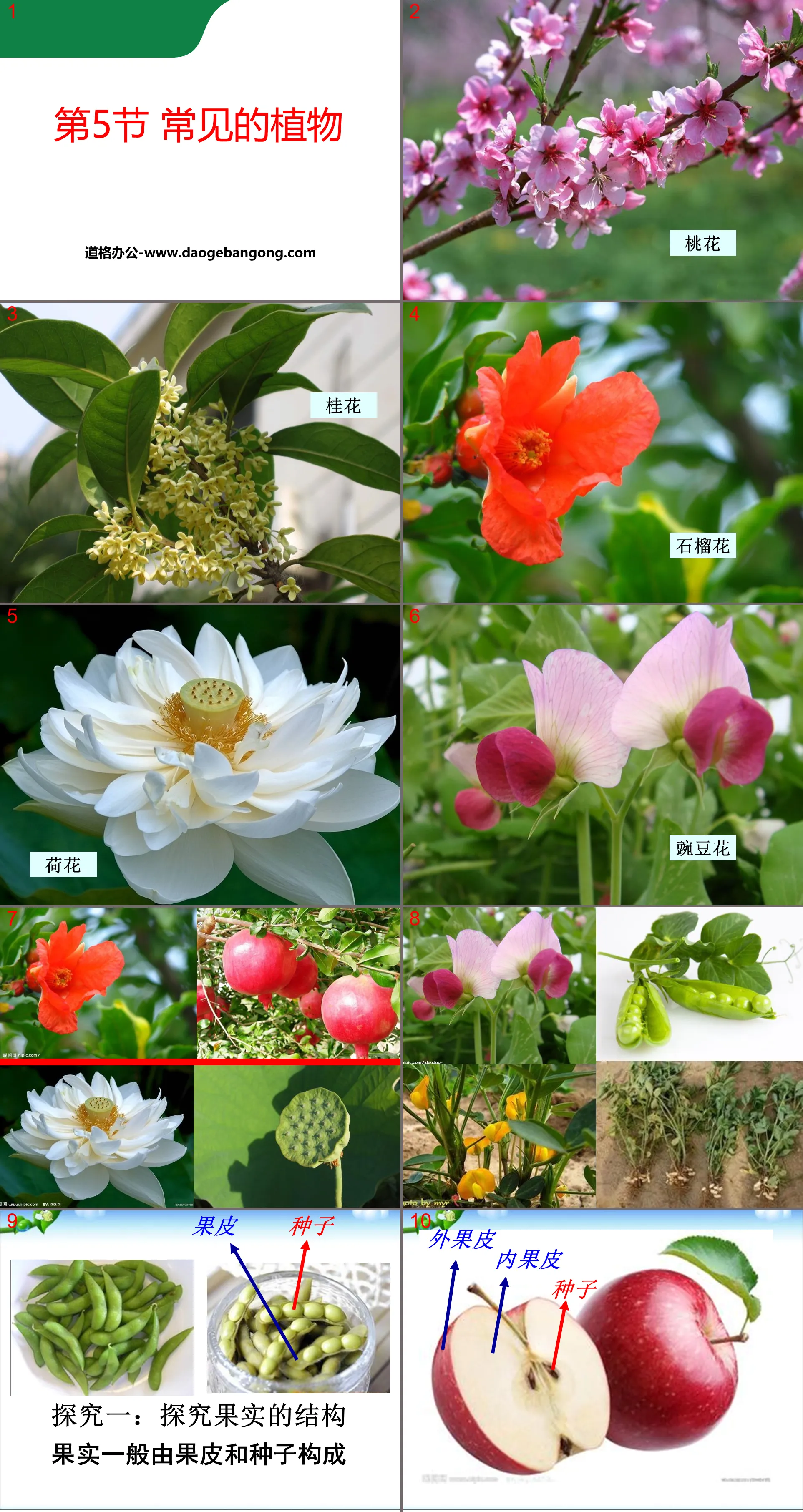
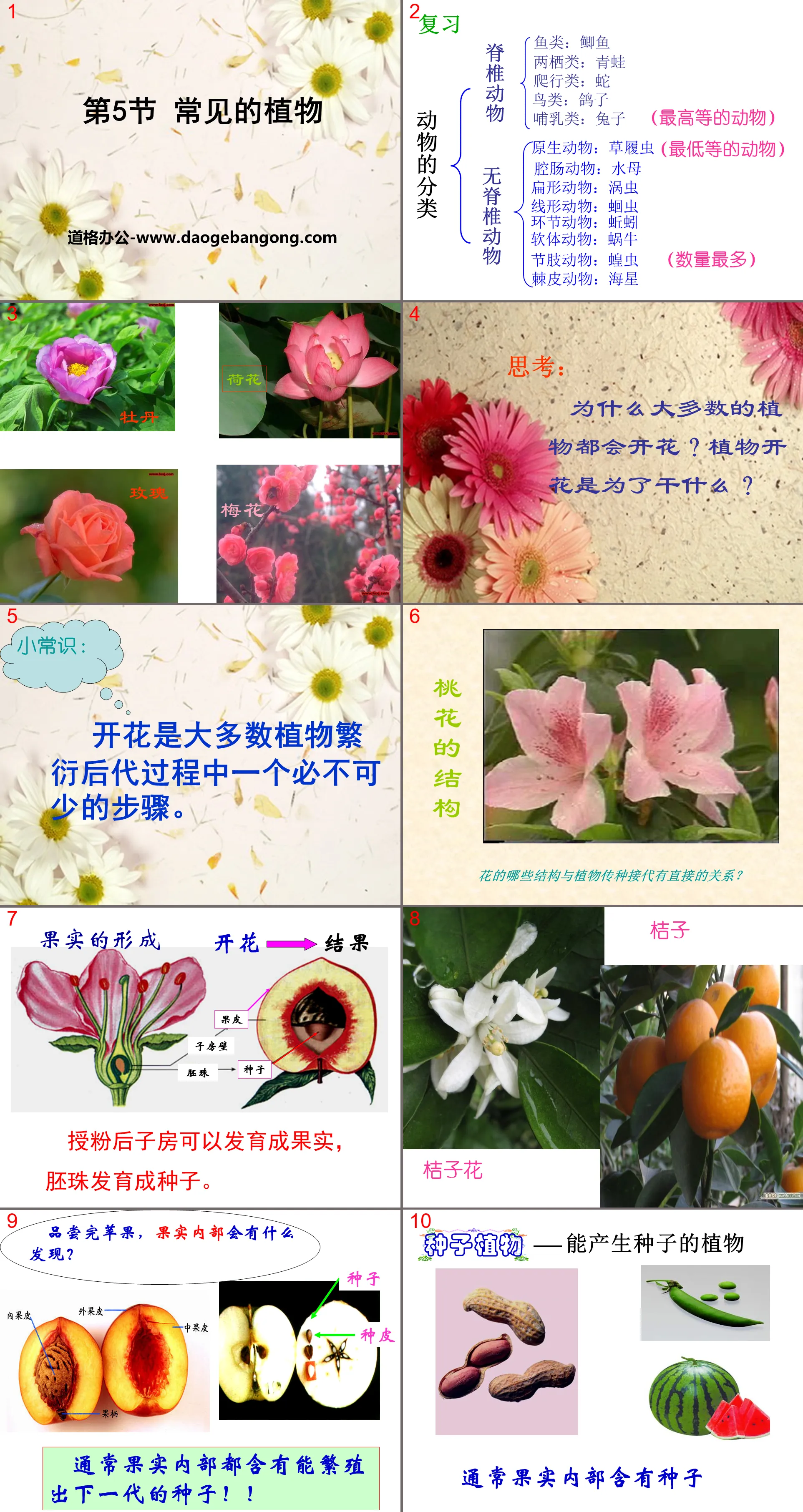



Authoritative PPT Summary
"Living and Non-living Things" PPT courseware
Part 1: What is a living thing?
Living objects are called organisms.
Inanimate objects are called non-living things.
Discussion: Which of the following do you think are living things? What are non-living things?
group discussion:
Tell me how you determine whether they are living or non-living things?
Biological and non-living things PPT, part 2 content: basic characteristics of living things
capable of reproducing offspring;
able to grow;
Able to excrete and breathe;
Respond to external stimuli
Common characteristics of living things:
Organisms generally have a cellular structure (except viruses)
All living things have the characteristics of inheritance and variation
Living things can adapt to the environment and can also affect the environment
Biological and non-biological PPT, part 3 content: thinking and discussion:
1. The dog will turn when it hits the wall. Some mechanical dogs will also turn when they hit the wall. Compare the difference between the two from the perspective of responding to external stimuli.
The movement of the mechanical dog and its response to stimuli are all artificially set, which is different from the way an organism responds to changes in its internal and external environment.
2. Dogs obtain energy by eating, and cars consume gasoline to obtain energy. What is the difference between the two?
On the one hand, the "food" eaten by dogs can be used for oxidative decomposition to provide energy, and on the other hand, it can be transformed into its own components. Cars consume gasoline and burn it to release energy that is supplied to the car.
Living and non-living things PPT, Part 4: Practice
1. Which of the following are living things ( )
A. Dinosaur fossils
B. Dead branches and leaves
C.Virus
D.Snowflake
analyze:
Dinosaurs are animals, but dinosaur fossils are no longer alive, so they are not living things; dead branches and leaves are no longer alive, so they are not living things;
Snowflakes are the solid form of water, inanimate and not living things;
Viruses are tiny organisms without cells
2. Those belonging to living things are---- ( )
Non-living things include--()
①Morris ②Mimosa ③Rainbow ④Wild goose ⑤Meteor ⑥Washing machine ⑦Vacuum cleaner ⑧Rocket ⑨Grasshopper ⑩Falling leaves
3. The essential difference between living things and non-living things is ( )
A. Is there life? B. Cell growth
C. Can breathe D. Can reproduce
Biological and non-biological PPT, Part 5: Observing the biological characteristics of snails
snails
Where did the students discover it?
Under the grass, under the rocks...
What do these places have in common?
dark, damp
Today we will study the snails we invited.
Pay attention, we must take care of it and cherish life.
Biological and non-biological PPT, Part 6: Use of magnifying glass
Hold the handle of the magnifying glass, place the object in front of the magnifying glass, move the object back and forth, and obtain a large and clear image by adjusting the distance between the magnifying glass and the object being observed.
If the object you want to observe cannot move, you can move your head and the magnifying glass at the same time to get a large and clear image.
What is observed with a magnifying glass is a virtual image of _________ and _________.
Biological and non-biological PPT, Part 7: Application Selection
1. Among the following phenomena, which one belongs to the phenomenon of life ()
A. The bicycle factory produces a large number of identical bicycles.
B. Continuously add coal to the boiler, discharge slag, release carbon dioxide, and carry out material transformation.
C. The waves hit the embankment.
D. A cow gives birth to a calf.
2. Through experiments, we know that snails do not have ( )
A. Touch B. Smell C. Hearing D. Vision
3. In order to observe more carefully, it is often necessary to use tools. The following tools allow us to observe snails carefully ( )
A.Microscope B.Telescope C.Reflector D.Magnifying glass
4. The snail has _____ diagonal horns, and its eyes are on ______________.
Keywords: Zhejiang Education Edition seventh-grade science PPT courseware free download, biological and non-biological PPT download, .PPT format;
For more information about the "Living and Non-Living Things" PPT courseware, please click the "Living and Non-Living Things" ppt tab.
"Living and Non-living Things" PPT:
"Living and Non-living Things" PPT Part 1 content: 1. Basic characteristics of living things 1. Able to reproduce offspring 2. Able to grow and develop 3. Able to metabolize 4. Respond to external stimuli All living things have common characteristics ① Able to Reproductive offspring ② can grow and develop..